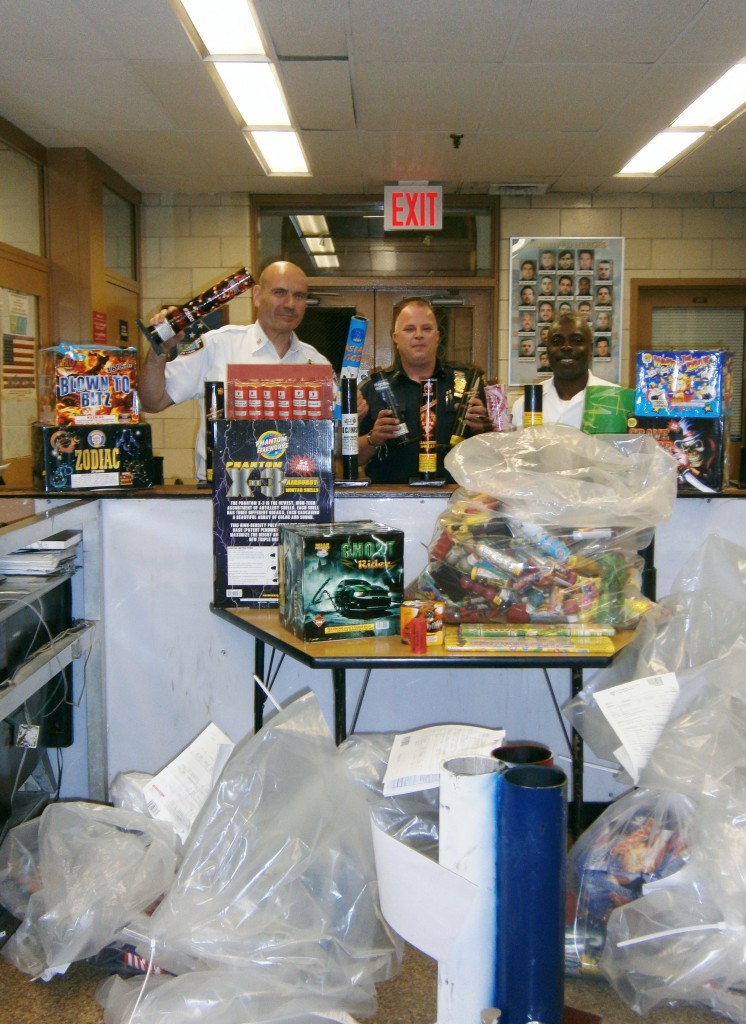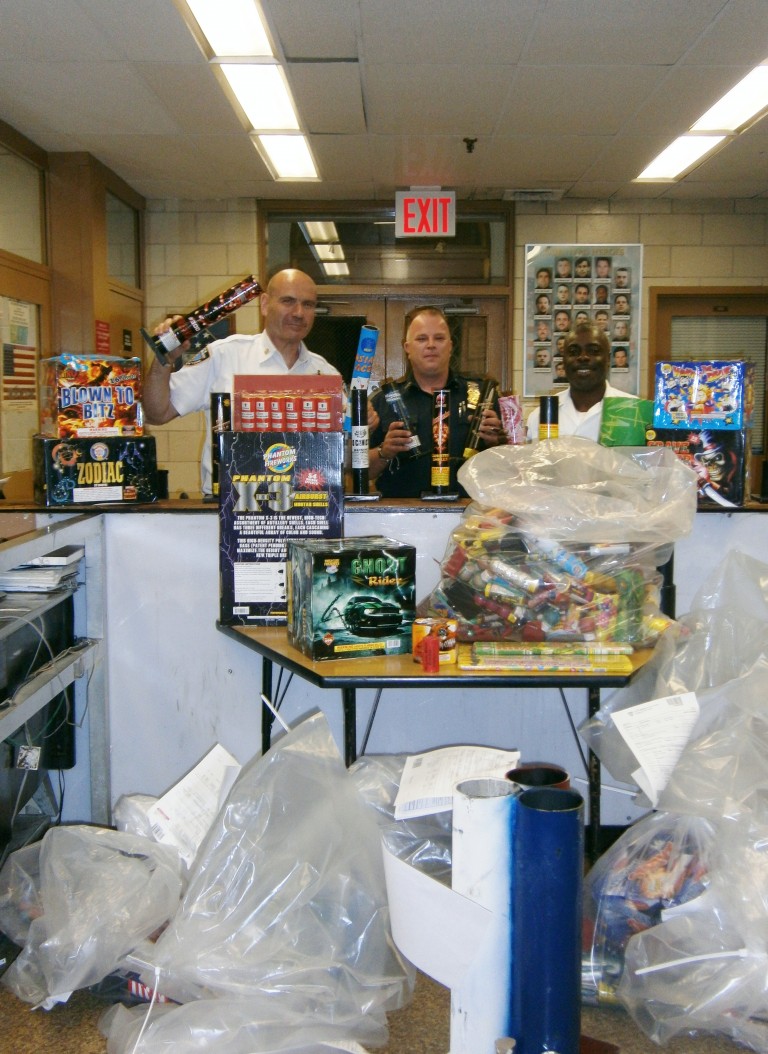
Commanding officer of the 106th Precinct, Capt. Thomas Pascale, Sgt Greg Barone, fireworks coordinator for 106th and Lt. Chris Charles, special operations lieutenant proudly display their successful haul from Fourth of July. Courtesy of the 106th Precinct.
Police at the 106 Precinct racked up a hefty cache of fireworks over the Fourth of July, making 11 arrests and issuing 11 summonses for a variety of offenses including possession of illegal fireworks and discharging fireworks.
Summonses can run anywhere from $25-$500 depending on what quantity and category of explosive is involved and if the individual being summonsed has a past record involving the use of fireworks. Law enforcement officials say the average fine is roughly $100.
But according to 106th Community Affairs Officer Ken Zorn, the repercussions of the summonses do not end with paying them. “Every summons issued and arrest made is logged into the precincts firework data base,” Zorn explained. “You can be sure if we’ve had to deal with you this year, we’ll be checking on you next year, and the one after that.”
Zorn maintains that the strict enforcement and the attention to intelligence that the precinct performs in relation to the Fourth is a crucial factor in keeping tragedy to a minimum.
“Sometimes people forget that fireworks are dangerous,” said Zorn. “And that’s the bottom line.” One Howard Beach resident might take his word on that––the man lost a finger when trying to set off a 2-inch mortar last Wednesday night.
Zorn also warned that some residents who were arrested and approached had mortars measuring more than 8 inches in diameter.
“Explosives of that caliber shoot between 850 and 1,000 feet in the air––several hundred feet more than planes landing at nearby JFK are flying.” This class of fireworks, experts maintain, are strictly for professional use.
In addition to the arrests made, police executed 50 confiscations, netting a huge haul of illegal explosives. “We had every type of firework you could think of,” said Zorn, who also told The Forum that the fireworks are brought back to the precinct and placed in static free bags to prevent them from exploding. They are then transported to the bomb squad in Rodman’s Neck where they are disposed of in a covered pit.
The arrests actually made on the holiday were added to others made earlier in the week through information and tips they received in conducting a firework sweep on line. Several people were arrested when they sold fireworks to undercover police after arranging for the sale on the internet and through Facebook.
Police say what they are most concerned with in this area is that Howard Beach is less than a quarter of a mile from the end of the runways at JFK. In addition to the danger the explosives pose to aircraft and passengers, people on the ground are in danger of losing their home to fire when a mortar of sufficient size explodes after being toppled over.
“There is a reason that people who deal in pyro technics have to complete the training they do to work safely in their field,” Zorn said. “To think you can just go and shoot off professional grade fireworks is like getting up one morning and thinking you should perform open heart surgery. Either way, lives are at risk.”
Despite the number of arrest and confiscations by the 106th precinct, officials there confirmed that there were less fireworks in the neighborhood overall than there have been in past years. They attribute that to a combination of factors including increased police presence and the fact that fireworks can be very costly with professional mortars costing about $500 a piece.
By Patricia Adams

